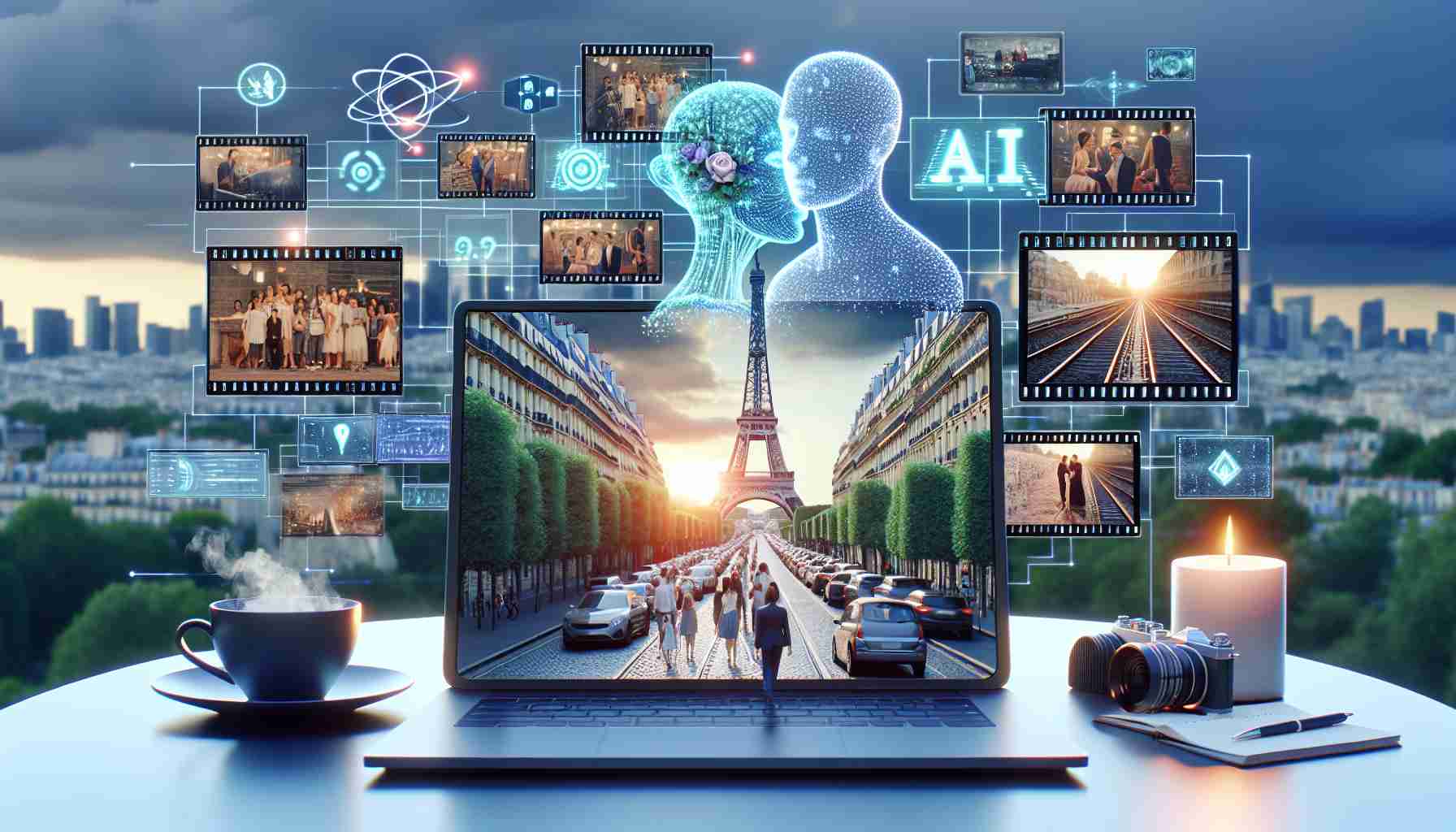TCL, widely known for its television manufacturing, is stepping into new territory with its very first AI-generated original movie, “Next Stop Paris”. Elevating the fusion of technology and creativity, TCL announced its venture into the world of original content via TCLtv+, starting with a love story that will debut this summer.
The intriguing romantic short is a tale about a young woman who, facing the betrayal of her fiancé, ends up on a solo honeymoon trip to Paris. In a twist of fate, she encounters a mysterious stranger on a train, leading to an unexpected romantic adventure through the heart of France.
“Next Stop Paris” may sound like a traditional romance film, but TCL has added a twist by relying largely on generative AI to produce this new form of storytelling. The company paired its technological prowess with the finesse of human writers, actors for motion capture, and voice performance to create a narrative that’s both innovative and enchanting. The multinational crew, including professionals from the US, Canada, UK, and Poland, has been pivotal in bringing this hybrid creation to life.
TCL’s strategic move into AI-generated content exemplifies the company’s ambition to distinguish itself through original programming. TCL’s head of content, Chris Regina, expressed excitement at this fresh approach, which marks the beginning of an innovative content generation for the company.
Despite the mixed reception toward the “Next Stop Paris” trailer, which reveals some teething issues with character designs and emotional delivery, TCL is unwavering in its pursuit to reshape storytelling. This effort aims not only to bolster TCLtv+’s viewership but also to carve out a unique brand identity in the entertainment landscape. Recognizing the need for a diverse content strategy, TCL also assures fans it plans to produce traditional films and shows, underscoring its commitment to quality and audience satisfaction.
Current Market Trends
The entertainment industry is increasingly embracing artificial intelligence to enhance content creation. The trend includes leveraging AI for various aspects of filmmaking, such as scriptwriting, animation, and post-production. Companies are exploring how these technologies can reduce costs, improve efficiency, and create new forms of entertainment. AI is particularly influential in animation and visual effects (VFX), streamlining processes that were traditionally labor-intensive.
On the distribution side, streaming services are becoming more prevalent, and original content is a significant factor in attracting and retaining subscribers. There is a push for differentiation through unique offerings, particularly those that integrate the latest technology, which is where AI-generated content comes in.
Forecasts
The use of AI in content creation is expected to grow as the technology advances and becomes more accessible. Some predict a future where AI could handle more complex aspects of filmmaking, potentially leading to a new era of personalized content generation. The demand for original content on streaming platforms is also expected to increase, with companies investing heavily in differentiation strategies.
Key Challenges and Controversies
The rise of AI in creative industries raises several challenges and controversies. One of the most significant debates centers around the potential loss of jobs for creative professionals if machines can perform tasks traditionally done by humans. Additionally, there is skepticism about AI’s capability to truly replicate the nuanced and emotional depth that human writers and directors bring to filmmaking.
Another issue is the potential for AI to perpetuate biases present in the data it is trained on, leading to a lack of diversity in storytelling. There’s also the question of authorship and intellectual property rights—when a film is created by AI, who owns the final product?
Advantages and Disadvantages
The integration of AI in filmmaking, as demonstrated by TCL’s “Next Stop Paris,” comes with a set of advantages and disadvantages:
Advantages:
– Cost Reduction: AI can help lower production costs by automating certain tasks.
– Increased Efficiency: AI can speed up the filmmaking process, from pre-production to post-production.
– Innovation: AI introduces new storytelling capabilities and could lead to unique creative outputs.
– Personalization: There’s potential for personalized content creation catering to individual viewer preferences.
Disadvantages:
– Quality Concerns: AI-generated content may suffer from a lack of emotional depth or subtlety, leading to criticism from audiences expecting high-quality storytelling.
– Job Impact: The automation of creative tasks could threaten traditional jobs in the industry.
– Ethical Concerns: Issues surrounding data bias, authorship, and the moral implications of AI-generated art.
For more information on TCL’s enterprises, you can visit their official website at TCL. Please note that this link leads to the main domain and does not include any subpages or specific articles about the topic discussed above.
The source of the article is from the blog karacasanime.com.ve

